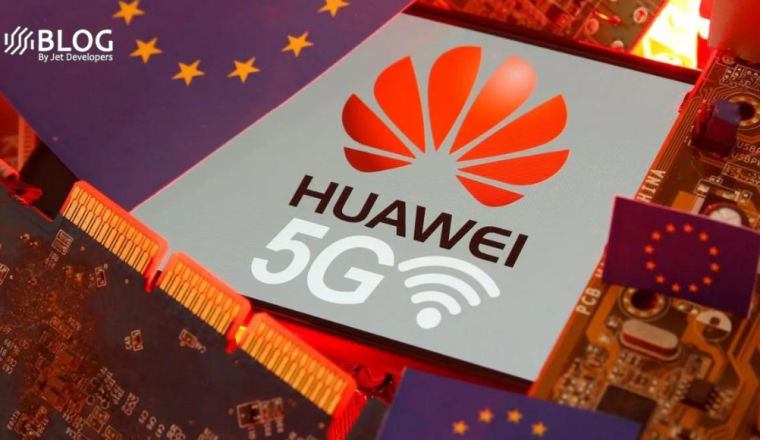Portugal Blocks Chinese Tech Giant Huawei from 5G Network
In a bold move, Portugal has decided to close its doors to companies from “high-risk” countries and jurisdictions regarding its fifth-generation (5G) phone network. Following in the footsteps of other Western nations, Portugal has effectively blocked Chinese tech giant Huawei Technologies Co. from its market, raising eyebrows and sparking conversations about the implications for national security.
The Portuguese government recently released a statement outlining its decision to prohibit the use of equipment from suppliers based outside the European Union, as well as those from non-member states of the North Atlantic Treaty Organization (NATO) or the Organization for Economic Co-operation and Development (OECD). This measure aims to safeguard national networks from potential security risks associated with equipment supplied by companies from these “high-risk” regions.
In their statement, the security assessment committee of the government’s Higher Council for Cyberspace Security highlighted that companies from outside these specific jurisdictions pose a significant risk to the security of national networks. This decision effectively excludes Chinese suppliers, including Huawei, which had previously collaborated with some Portuguese telecommunications firms to develop their 5G networks.
One such collaboration was between Altice Portugal and Huawei, announced in 2019, as they worked together to develop cutting-edge 5G technology. However, earlier this year, Altice Portugal made a significant shift, selecting Nokia Oyj as the equipment provider for its core 5G network. At the time of this reporting, Altice was not available for immediate comment on the recent ban.
More details on the decision
The government’s statement did not explicitly name any specific suppliers now banned from participation. Additionally, no timeline was provided for telecommunication companies in Portugal to remove equipment supplied by these now-banned suppliers from their networks. The Portuguese business newspaper Jornal Economico first reported the decision, stirring discussions and speculation within the industry.
This move by Portugal echoes the concerns expressed by several other Western countries regarding the potential risks associated with allowing companies from certain nations to participate in building critical infrastructure like 5G networks. These concerns primarily revolve around the possibility of foreign governments accessing or influencing sensitive data and communications raising national security issues.
While the decision might raise eyebrows and elicit mixed reactions, it underscores Portugal’s commitment to ensuring the integrity and security of its telecommunication infrastructure. By effectively blocking Chinese companies, Portugal joins a growing list of countries that have taken similar steps to mitigate potential risks associated with foreign suppliers.
The ban, however, marks a significant development in the ongoing global debate over the involvement of Chinese tech companies in 5G network infrastructure. As countries navigate the complex landscape of emerging technologies and national security, it is clear that the issue of trust and risk assessment will continue to shape the future of telecommunications.
As the world races toward the 5G revolution, the implications of such decisions are far-reaching. While Portugal takes a definitive stance, the debate surrounding the balance between innovation, national security, and international cooperation intensifies. Time will tell how this move will impact the telecommunications landscape in Portugal and beyond.




